QNAP TS-451+ SOHO NAS Review
by Ganesh T S on October 29, 2015 8:00 AM ESTEncryption Support Evaluation
Consumers looking for encryption capabilities can opt to encrypt a iSCSI share with TrueCrypt or some in-built encryption mechanism in the client OS. However, if requirements dictate that the data must be shared across multiple users / computers, relying on encryption in the NAS is the best way to move forward. Most NAS vendors use the industry-standard 256-bit AES encryption algorithm. One approach is to encrypt only a particular shared folder while the other approach is to encrypt the full volume. Till recently, QNAP only supported volume-level encryption. However, with the launch of QTS 4.2, folder level encryption is also supported now. We evaluated the effects of enabling folder-level encryption.
On the hardware side, encryption support can be in the form of specialized hardware blocks in the SoC (common in ARM / PowerPC based NAS units). In x86-based systems, accelerated encryption support is dependent on whether the AES-NI instruction is available on the host CPU. The Celeron J1900 unfortunately doesn't have AES-NI support. That prepares us for the performance penalty.
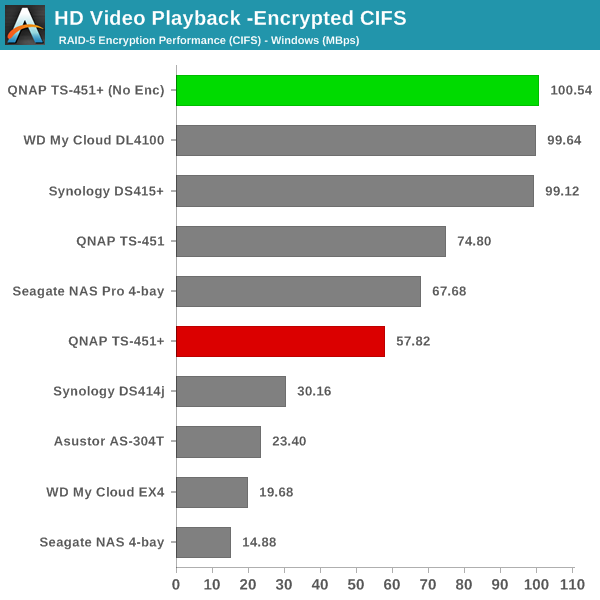
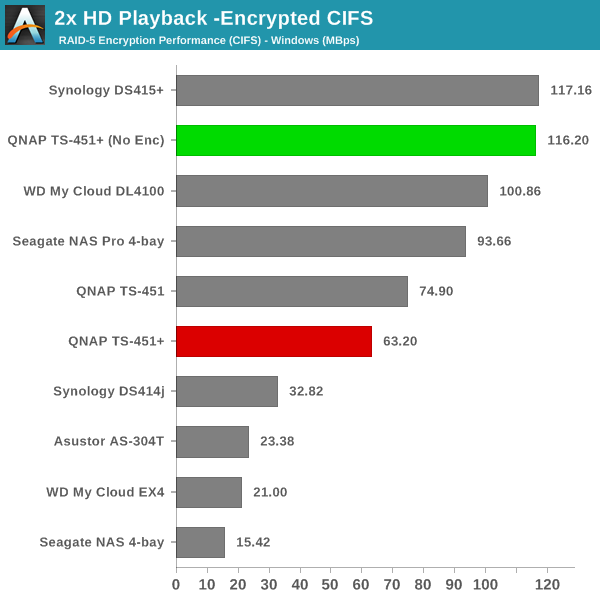
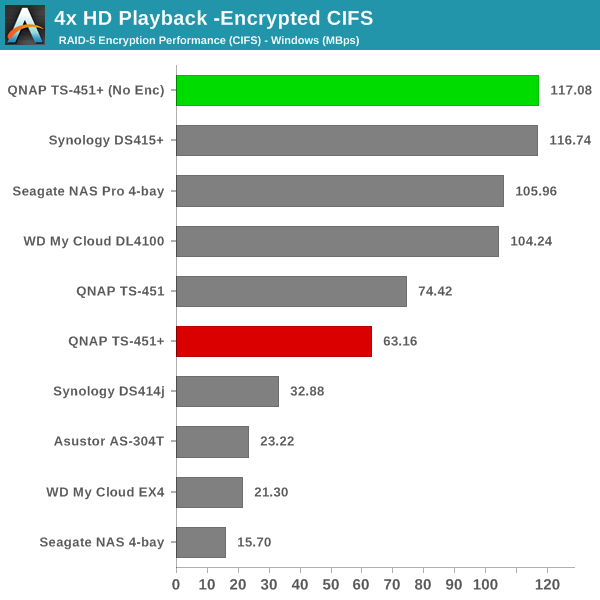
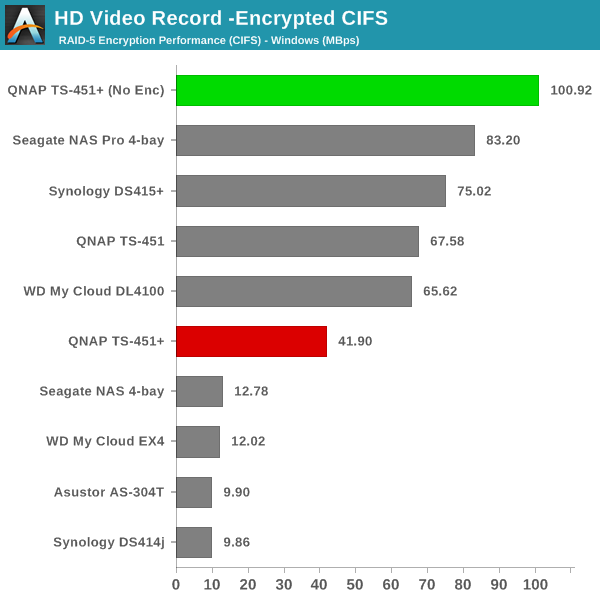
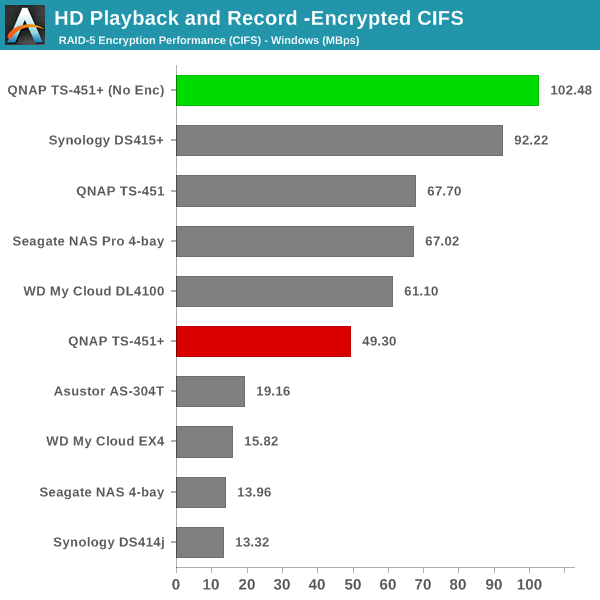
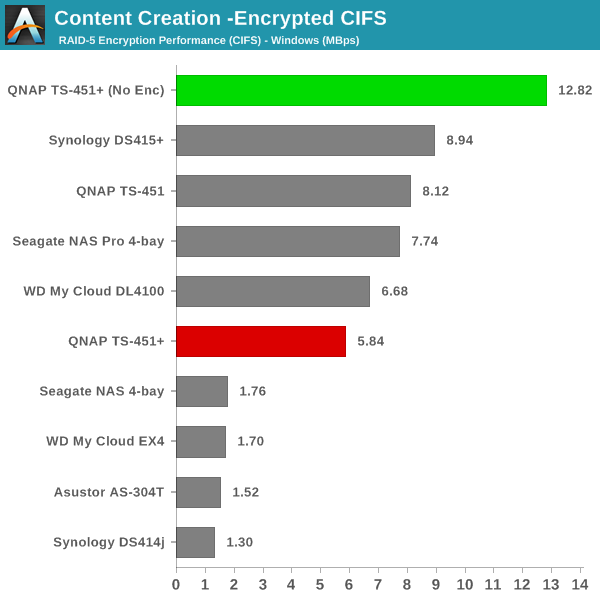
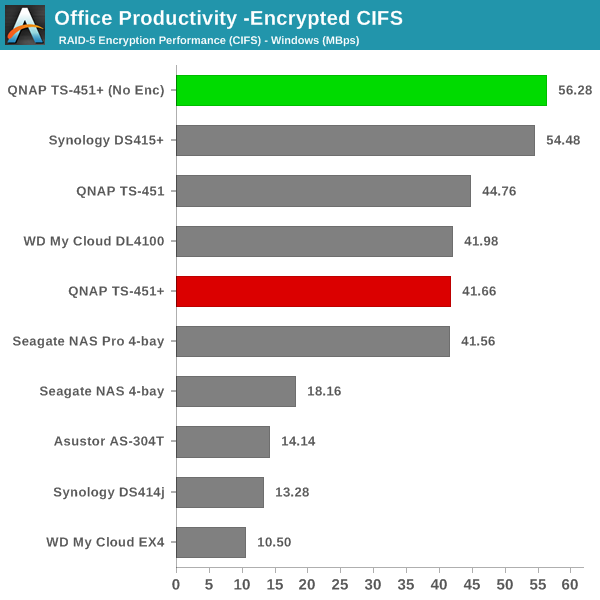
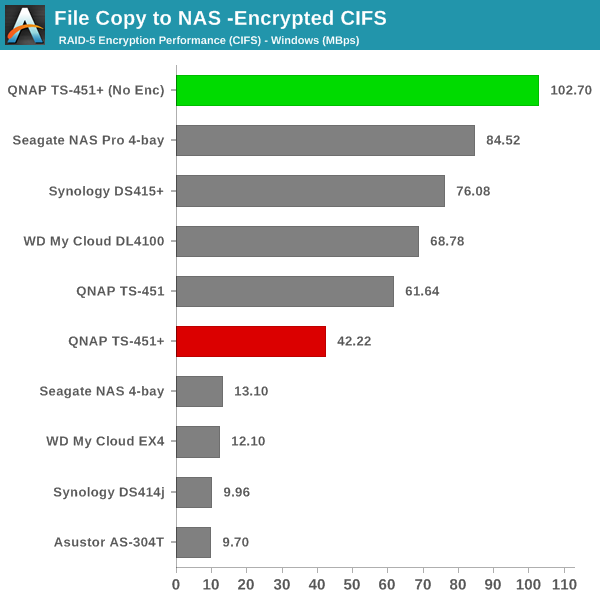
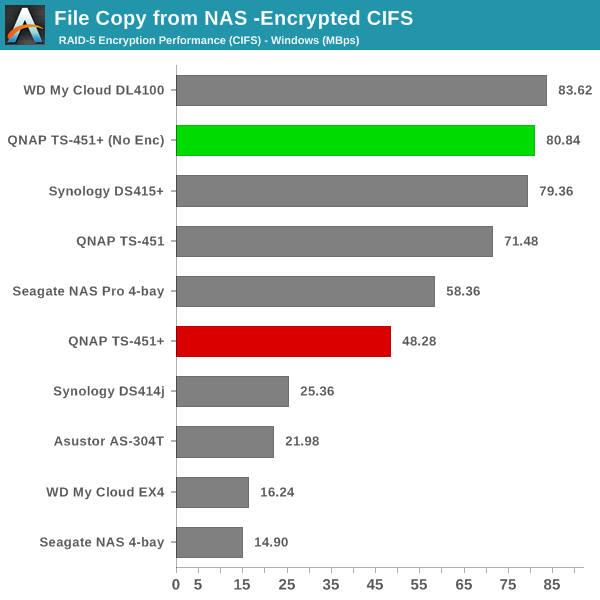





Performance loss is around the 50% range. Writes, in particular, take a heavy hit with encryption enabled. The quad-core CPU helps a bit in taking up the cryptographic load, but our advice would be for users to not take advantage of the encryption capabilities of the TS-451+ unless performance is not a concern.










34 Comments
View All Comments
Brianbeastsu - Thursday, November 26, 2015 - link
This has been available since the most recent firmware upgrade.....sync to most cloud services like google drive etc.....not 100% on one drive but I'm guessing unless Microsoft doest have an api for it you can do it with qnapShambles31 - Thursday, October 29, 2015 - link
I know this review didn't go into QTS much but I thought I'd ask a related question. Is there any way for QTS 4.2 to support shadow copy, or previous versions in windows? I picked up the 2 bay model for my parents hoping to use it as a backup for them. I wanted to use snapshots and shadow copy. I've got snapshots running but can't seem to get it to support shadow copies on networked files. Surely a NAS would support this?Minion4Hire - Friday, October 30, 2015 - link
I think network file VSS support was only just introduced with Windows Server 2012 R2. Otherwise you only have local volume support. But you should be able to get it working if you can connect it as an iSCSI LUN.kgardas - Thursday, October 29, 2015 - link
Does it support ECC RAM? IMHO a must have for such NAS...DanNeely - Thursday, October 29, 2015 - link
Not at this pricepoint/market segment. The J1900 doesn't support it. You need to step up from prosumer to small/medium enterprise level hardware for ECC. QNAP apparently doesn't offer ECC in anything below an 8bay model.mcveigh - Thursday, October 29, 2015 - link
Any comments on the remote? How was it's build quality?Kutark - Friday, October 30, 2015 - link
Can someone explain to me why basic NAS like this are $650. It makes no sense. You could easily build a box that would have far more processing power, with an awesome raid controller, for less than this. Only advantage i can see would be size?milkod2001 - Friday, October 30, 2015 - link
It is expensive because it's ready go to solution. You throw HDDs into that, spend 30 minutes with setup /install and that's it. You also have option to contact customer support if something goes wrong.Your own solution might be much better / cheaper but it requires knowledge / experience to put together hardware parts, install NAS OS and make it all work. There is no customer support, you are on your own.
Kutark - Friday, October 30, 2015 - link
That definitely makes sense. I always forget about the customer support angle because i don't even remember the last time i had to do customer support for any piece of hardware ever. Not trying to toot my own horn, but thats part of the fun of being a hardware enthusiast.Chloiber - Saturday, October 31, 2015 - link
You also pay for the software. I own a Synology DS415+ and use it (apart from the usual NAS stuff) for a OpenVPN Server, Docker with Jenkins, Download Station and have mobile apps available. A quite good backup software is already included and you have set that stuff up (well, apart from a robust, secure OpenVPN, which takes a bit longer) in a matter of minutes. Relatively sophisticated security / logging mechanisms are also included. I don't even want to imagine how long that stuff would take me with a self built NAS. I rather spend 100-200$ more and have a very good and versatile NAS than spend weeks fiddling around with linux.If you are up for it, go for it. For me, it was a no-brainer.